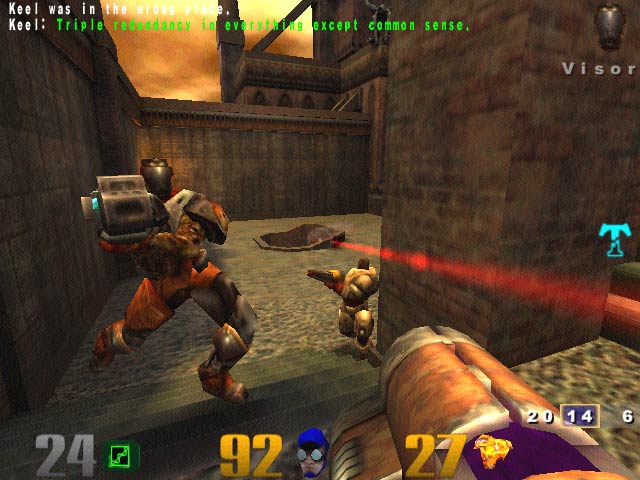[QUOTE="nameless12345"]
[QUOTE="Kinthalis"]
But this is the issue. Essentially you need a large third party to do the optimizing, because most devs can't handle the huge expense of trying to make 7 yar old hardware look "ok".
The artists say: Hey, let's have a ton of dynamic lighting for this explosion effect, and lots of dust particles! IT will look amazing!
The programmers say: Uhm, guys, these are consoles, not PC's. We can't do that. I'll give 1 dynamic light and 50 dust particles, ok?
The artists: F that! ok... at least give us a 100 particles and 2 dynamic lights?! Please???
The programmers: God damn it! Fine! We'll gather up the entire progrmaming department and for the next couple fo months try our best to figure out how to make these crappy consoles spit out another dynamic light and 50 more particles!
Artists: Cool beans.
*** 2 months later ***
Programmers: Ok, we got you 2 dynamic lights and 75 particles. It's all we could do.
Artists, I guess that's ok. We'll just overaly a few of these explosion effects together!
Programmers: **faints**
Kinthalis
Well, I think there's no denying that coding for high-end PCs is easier due to less limitation. But then they aren't only writing games for the top PCs but for a variety of different hardware out there, ranging from bellow console levels to extremely powerful machines. And that's basically the main problem with PC development - you can never get the best result. On the other hand, development for consoles is a lot different because they're optimizing games just for one set of hardware and don't need to bother with graphics APIs (instead can use "direct to metal"), drivers and the like.
So while PC devs are optimizing their games for a plethora of different hardware console devs optimize just for a specific set of hardware and try to squeeze the best out of it. Of course once most of the potential is squeezed out it's time for a new gen (altho the best-looking console games actually come by the ends of their life-cycles when the devs fully master the hardware).
Your facts are about 10 years out of date.
Pc developers do not optimize for a "plethora" of different hardware. They code using API's that abstract that complexity. Pc game devs usually choose to target a mid range PC, and scale to a low end one, adding extras for high end ones.
Basically the same process as on consoles, excpet instead of just scaling and adding extras they have to contend with 2 or 3 (wii) COMPLETELY different sets of hardware WITHOUT the aid of API's.
You're crazy if you think developiong for the PC is harder than for the consoles. Why do you think indie devs usually START on the PC? Cause it's harder?
Well like you said - PC devs usually target the "lowest common denominator" be it consoles or mediocre PCs and then enhance their games for better hardware. But on the consoles there is only one set of hardware and they can start utilizing all of it since start. That's the reason why some console games have better detail and effects than many PC games during the start of a new generation. PC was always held back by things like slow API, slow PCs, resource consuming OS, ect.
Console multi-plat development is a different story because they usually pick just one target system and then port to the other ones. So the "2nd class" console version will usually look worse unless extra work is put into it. It's the task of console makers to provide easy to develop for hardware to the 3rd parties.
Of course console development isn't easier by itself but there is less work with different hardware and software combinations.


Log in to comment